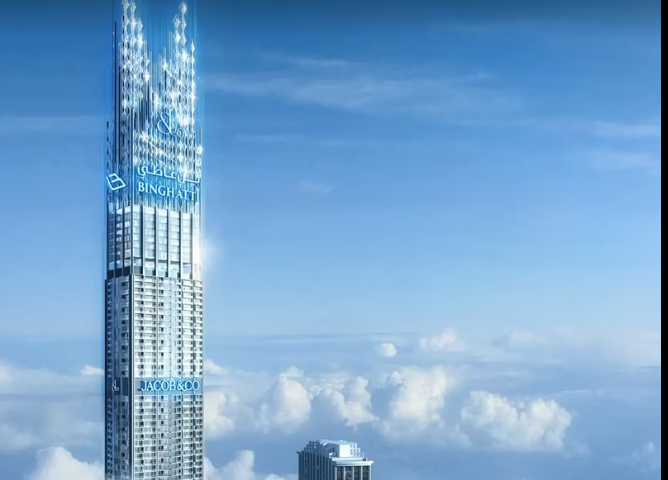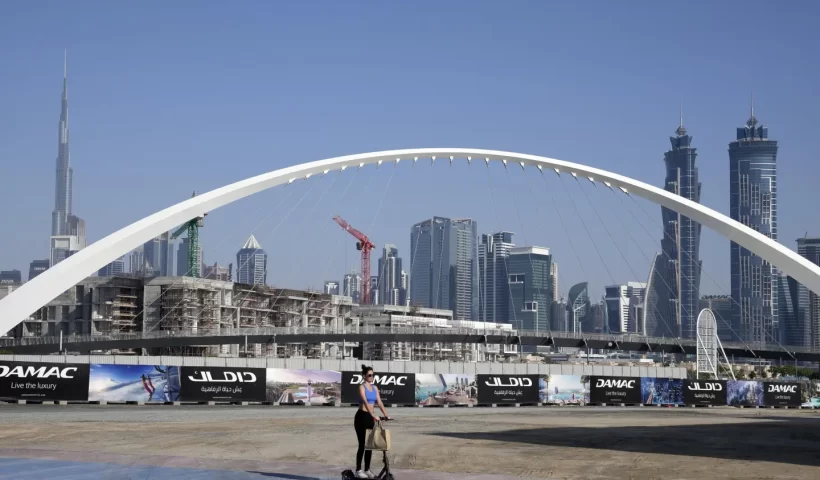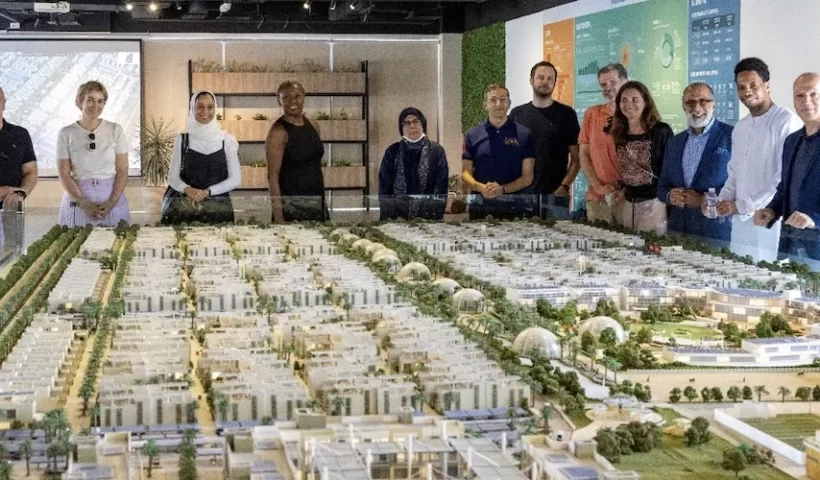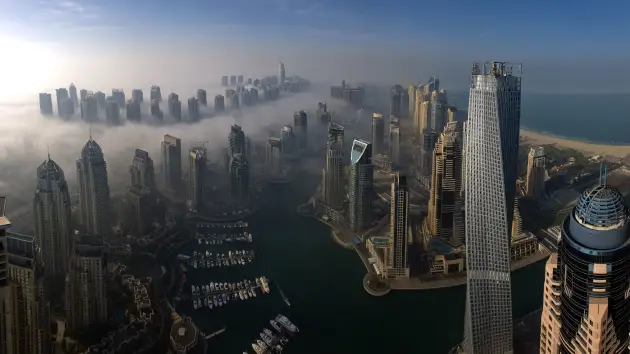The UAE’s skyline is continually changing as new cities, structures, and even islands are created.
The UAE is now among the most advanced and sophisticated nations in the world thanks to the enormous development it has undergone in the previous ten years.
The same number of projects are expected to be completed in 2023 as were last year.
For information on the upcoming megaprojects in Dubai, Abu Dhabi, and other locations, see the slideshow above and the list below.
The dates of completion could change.
Dubai’s Burj Binghatti
Since Burj Khalifa won the title of “world’s tallest tower” back in 2010, there have been a few contenders, and this one is vying for the slightly different title of “world’s tallest residential tower.”
According to developer Binghatti, Burj Binghatti will feature “more than 112 storeys” and give residents the opportunity to “live amidst the clouds.”
It is being developed in Business Bay in collaboration with the New York-based watch and jewelry company Jacob & Co.
Burj Binghatti needs to rise higher than the existing record-holder, New York’s Central Park Tower, which stands at 472-meters, in order to claim the title of highest residential tower in the world.
Jebel Ali Palm
It doesn’t get a lot bigger than this in terms of size.
Off the coast of Dubai, the man-made island known as Palm Jebel Ali has been inert for some time but could soon start to bloom.
Late last year, the island’s developer Nakheel announced that it is reviewing its plans. Observe this space.
URB’s Agri Hub
Although there are many different sizes and shapes of tourist attractions in Dubai, this one is a little different.
The creator of Agri Hub, URB, claims that it will expand to be the biggest of its kind in the world and produce 10,000 employment.
It will provide enjoyment, excitement, and food security. Although the exact location has not yet been chosen, a few potential sites are being examined for their suitability.
:quality(70)/cloudfront-eu-central-1.images.arcpublishing.com/thenational/EADIGWKAB5APFJ26OPTRWMAKLQ.jpg)
Urban Tech District of Dubai
This urban technology zone, another from the same developer, URB, will be situated on the Creekside of the Al Jaddaf neighborhood in Dubai.
According to URB CEO Baharash Bagherian, “The Urban Tech District will be an innovative global tech hub for urban innovation.” With a total built-up area of 140,000 square meters, it will be the largest urban tech zone in the world, making Dubai the hub for urban innovation.
The region is expected to generate 4,000 jobs and be able to conduct conferences, seminars, company incubation programs, training, and research sessions.
Ethnic Rail
The train project, a recurring entry on this list, has advanced significantly during the past 12 months as construction has accelerated.
The UAE will be connected to the rest of the Gulf after the rail network is finished. The project’s first stage is in use and is utilized to move supplies and materials throughout the Emirates.
The project was 70% finished as of December, with the railway line between Abu Dhabi and Dubai being joined in March and Ras Al Khaimah and Sharjah being connected in October.
Although the exact route and start date for the UAE passenger line have not yet been revealed, construction plans for the first passenger stop in Fujairah have been made public.
The Anantara World Islands
Dubai Resort was the first hotel to open there in November as the World Islands Activity on the massive project off the coast of Dubai has been picking up.
The Heart of Europe project by Kleindienst Group is also almost complete, and the Oman island will be developed by Dubai-based builder and contractor Inspire Home Contracting.
The Heart of Europe, a six-island group in the midst of Dubai’s The World islands, will contain 4,000 apartments once all of its phases are finished.
Solar Park for Mohammed bin Rashid
In an effort to minimize its dependency on natural gas and diversify its energy sources, the Dubai Electricity and Water Authority (Dewa) is constructing the Mohammed bin Rashid Al Maktoum Solar Park, the largest solar energy park in the world.
The fourth phase will reduce carbon emissions by 1.6 million tonnes annually and supply sustainable energy for around 320,000 homes.
The park’s sixth phase will start to become accessible beginning in Q3 2025.
On Saadiyat Island, work on the Natural History Museum is ongoing and 25% of it was finished in October.
The 35,000 square meter project will take guests on a 14 billion year trip across time and space, from the beginning of the universe to the future of the Earth.
The museum is scheduled to be finished by the end of 2025, according to tourism officials.
National Museum of Zayed
From a distance, one can see the Saadiyat Island construction site’s rising cluster of skyscrapers, which resemble falcon’s wings.
The museum, which was created by renowned British architects Foster + Partners, will tell the tale of the late Sheikh Zayed bin Sultan Al Nahyan, the founding father of the UAE, and emphasize the history of the country.












